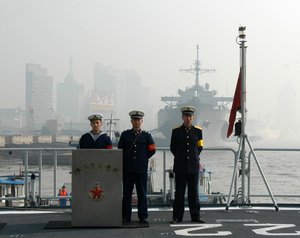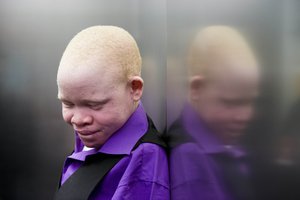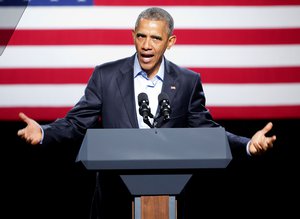Learning from the Past (DePauw University)
Edit Public Technologies 19 Apr 2016
Wanli, emperor of China, had listened patiently to the advice of the imperial academy as each member made a case for who the next emperor should be ... Confucianism and the Succession Crisis of the Wanli Emperor, the game played by Mou's class, is but one of many classroom games in the Reacting to the Past series developed by experts in their fields....
New flats offered for sale at discounts
Edit Hong Kong Standard 09 Dec 2014
Henderson Land Development (0012) has priced the first batch of H Bonaire flats in Ap Lei Chau at HK$18,426 per average sellable sq ft, after weighing in the highest discount of 12 percent. //--> Elise Choi. Wednesday, December 10, 2014 ... ADVERTISEMENT ... In Sai Wan, Emperor International (0163) is likely to release its first price list tomorrow for at least 50 units in its Upton project, executive director Donald Cheung Ping-keung said ... ....
{English} Sotheby's HK Chinese Ceramics and Works of Art Autumn Sale 2014 (8 October) (Sotheby's Inc)
Edit noodls 03 Sep 2014
1644) emperors typically commissioned their own porcelains and relegated wares from previous reigns to storage ... produced for the Hongwu Emperor (r.1368-98), it was appropriated by the Yongle Emperor (r. 1403-24), whose reign mark was thinly engraved, before the Xuande Emperor (r ... Porcelain of the period remained greatly treasured by later Emperors, particularly Emperor Wanli....
{English} Sotheby's HK Presents the Meiyintang Chicken Cup (8 April) (Sotheby's Inc)
Edit noodls 12 Mar 2014
"During the time of Shenzong [Wanli], the emperor liked to see [the Chicken cups] ... 1911) emperors and other discerning literati collectors ... Ever since the Ming dynasty when they were produced, Chenghua period 'chicken cups' have been praised and treasured by emperors and connoisseurs alike ... The Wanli Emperor (r ... The Qianlong Emperor (r ... Hall 5, Hong Kong Convention and Exhibition Centre (New Wing), 1 Expo Drive, Wan Chai, Hong Kong....
Hoping to Save the Remains of a Ming Dynasty Temple
Edit The New York Times 11 Dec 2013
First a printing press, then real estate developers, now a welding-machine factory ... Yet the real threat to the temple — dozens of historically and religiously significant buildings begun in 1581, the ninth year of the reign of the Wanli Emperor, and given its present name in 1734 during the Qing dynasty — isn’t decay, say residents and conservationists. It’s redevelopment ... Workers moved in ... Together with Mr ... The echo ... Hu....
- 1
- 2
- 3
- 4
- 5
- Next page »









